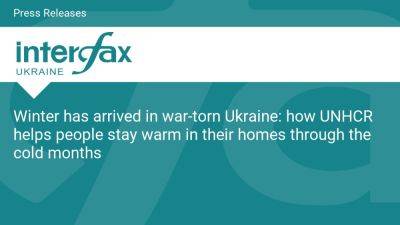Home
This is a summary of what was said by Kelly T. Clements, UN Deputy High Commissioner for Refugees – to whom quoted text may be attributed – at today’s press briefing at the Palais des Nations in Geneva.
12 Nov 2024
© UN Deputy High Commissioner for Refugees Kelly T. Clements visits North Saltivka in Kharkiv © UNHCR/Iryna Tymchyshyn
GENEVA – As we approach next week’s grim mark of 1,000 days since the Russian Federation’s full-scale invasion of Ukraine, the needs of civilians are growing amid intense attacks and as another gruelling winter season sets in.
Russia’s destruction of energy infrastructure has led to an overall loss of 65 per cent of energy generation capacity in recent months, and the attacks continue, disrupting electricity, heating and water supplies.
The deepening emotional toll on innocent people became clear during my visit to the country last week; the intense attacks on critical infrastructure and civilian sites – and constant air-raid warnings – are exacting a grave toll on physical and mental health.
Since August, some 170,000 people have been forced to flee their homes in the east, with many evacuated from areas experiencing hostilities, joining the nearly 4 million who remain displaced within Ukraine and 6.7 million more who have sought refuge outside the country. This includes 400,000 new refugees who crossed into Europe from the beginning of 2024 to August 2024 to seek safety from the war and bombs.
In Kharkiv, one of the most war-affected regions of the country, explosions sounded in the background as we visited a collective centre supported by UNHCR, the UN Refugee Agency. There, I met Svitlana, a 65-year-old woman whose apartment was destroyed by a glide bomb weeks before. Her quiet








